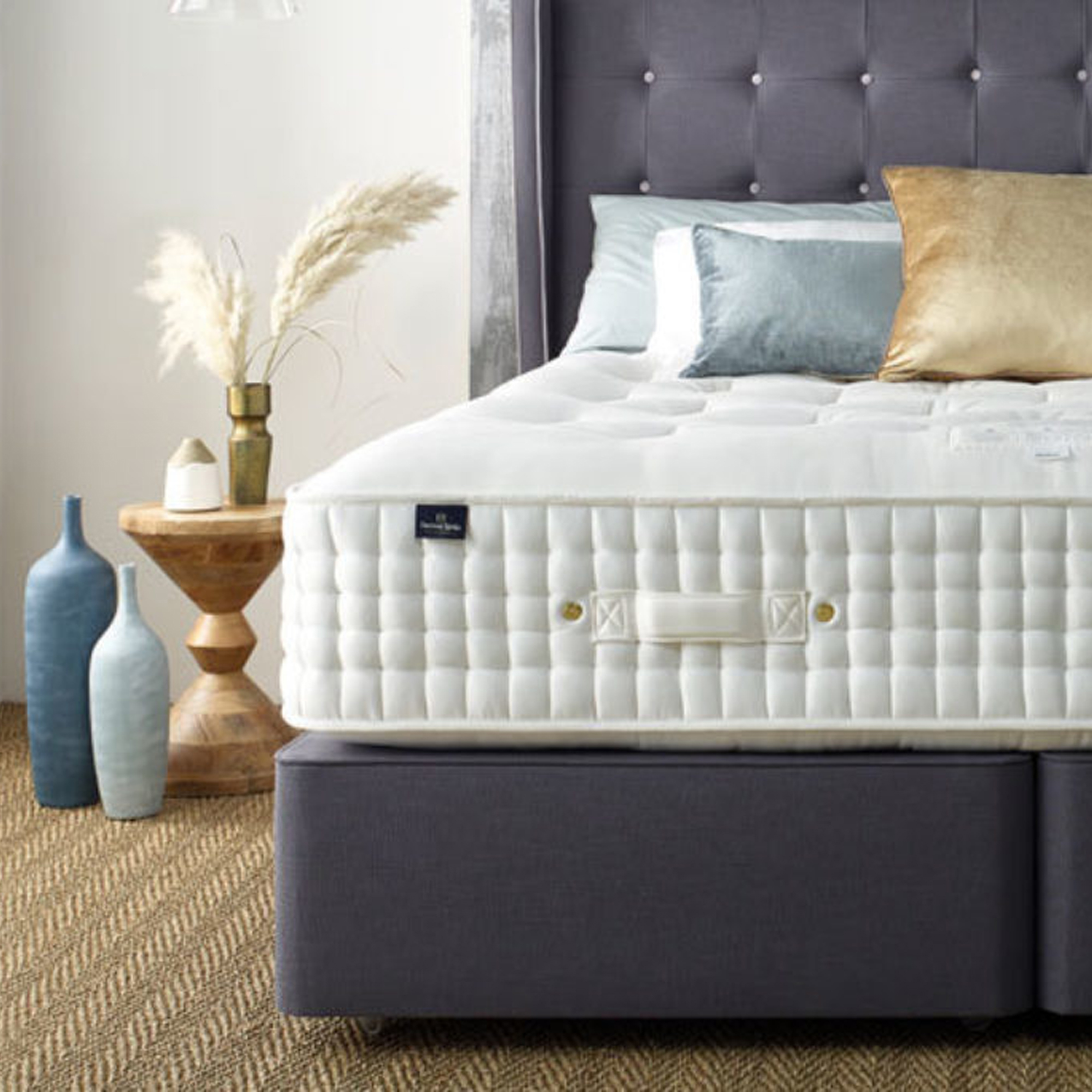
If you're looking for the best mattress to invest in, or you're on the hunt for a new bed or headboard, then Harrison Spinks is a brand that may already be on your radar.
Harrison Spinks has been around since 1840, and is now a fifth generation Yorkshire business that specialises in manufacturing mattresses and beds the traditional and more sustainable way.
Farmer’s wife and wedding event organiser Jo McPartland, and her farmer husband Gary, run the Harrison Spinks Farm in Bolton Percy, North Yorkshire. The farm, which has been owned by the Leeds-based bedmakers since 2009, keeps speciality sheep, Angora goats and alpacas, and grows hemp and flax, all of which provide materials for the company’s sumptuous luxury mattresses.
We spoke to Jo and Gary to find out more about their home, their business, and day-to-day life on the farm.
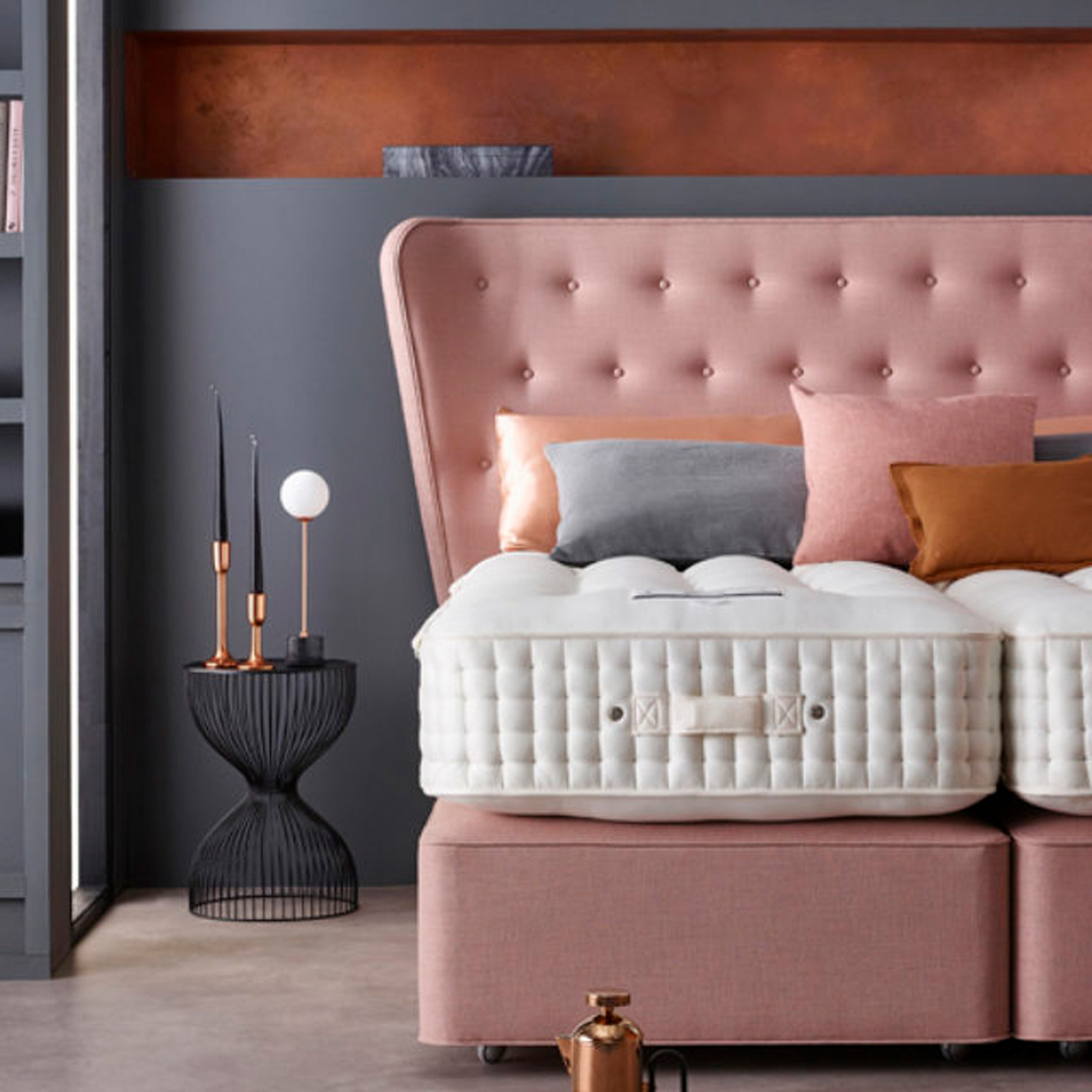
We spoke to Jo and Gary to find out more about their home, their business, and day-to-day life on the farm.
The Harrington Spinks farm
Jo and Gary live in a converted barn on the farm, and have three grown-up sons and two grandchildren.
Jo was born in York but raised in the countryside, and has always loved it. Since taking on the 300-acre farm 10 years ago, Jo has also established a wedding events business at Hornington Manor, the 18th-century house and barn set within the grounds, offering both a venue for celebrations and stylish accommodation featuring Harrison Spinks beds and mattresses.
What do you love most about where you live?
'Before we moved to the farm, we lived in a village not far from here,' says Jo. 'Gary was a local gamekeeper and I was a sales rep, but when we were offered the chance to live and work here, we jumped at it – this is such a beautiful place, and it was a new and exciting project for us.
It’s just so beautiful here – it’s not called God’s Own Country for nothing! The people here are so friendly and there’s a great sense of community. Here, everyone helps each other'.
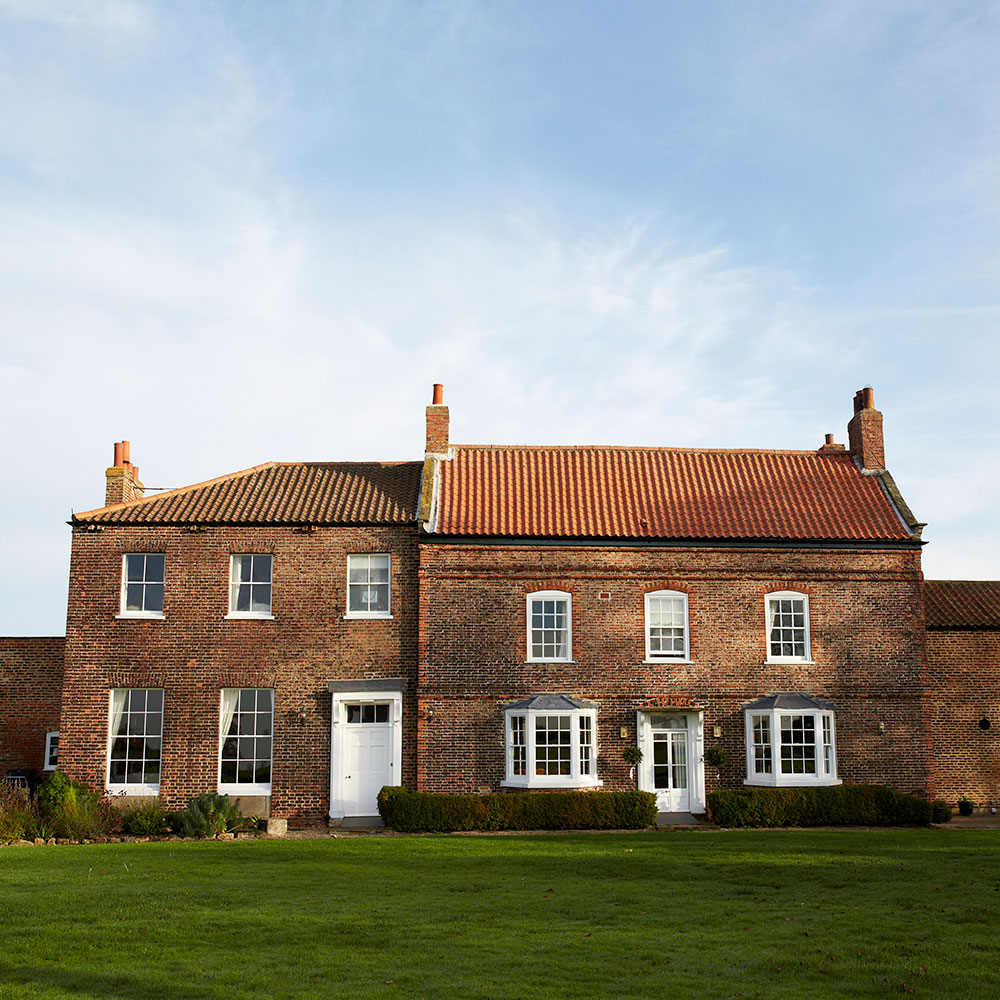
How do you find farming life?
We’d had a smallholding previously, but I didn’t have any experience of farming. I quickly got stuck in and loved it, as did our eldest son Liam, who works alongside Gary, caring for the livestock and land.
My main involvement is during lambing time, when some 400 lambs might be born. It lasts for about two months each spring, and can be 24/7 at times, so it’s pretty full on!
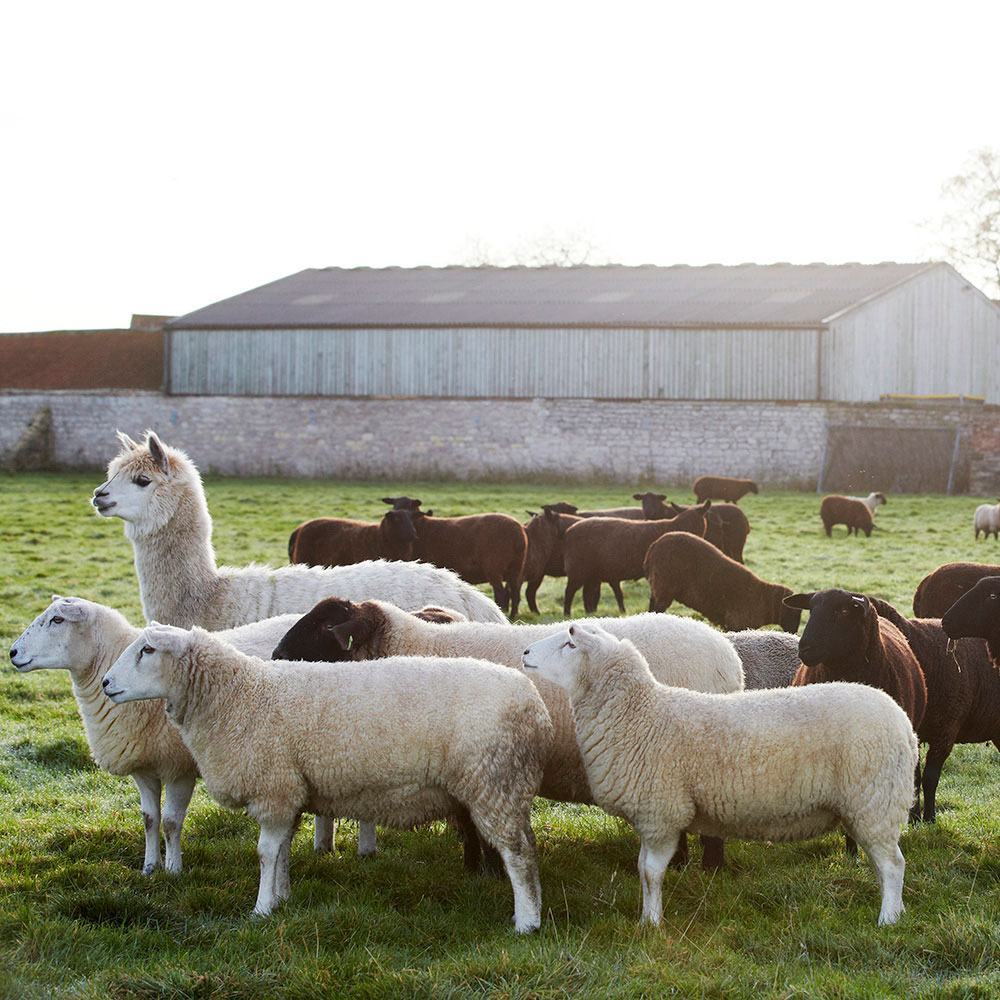
Tell us about the livestock
We’re very fond of all the animals here and have even named some of them! I’ve got an especially soft spot for a sheep called Harrison. He was the smallest of triplets when he was born nine years ago – just the size of my hand – and I reared him myself, carrying him around in a papoose for weeks, and keeping him warm in the kitchen at home.
We have about 600 Zwartbles, Suffolks, Texels and Wensleydale sheep. These varieties produce the springiest, most resilient wool for mattresses and upholstery. We also have three Angora goats that produce luxurious mohair, and five alpacas whose fleece is also softer and finer than sheep’s wool. Additional wool from all over the north of England is sourced from the nearby British Wool Marketing Board in Bradford.
What about the hemp?
Hemp is strong and more absorbent than cotton so it helps to regulate mattress temperature. On our farm, we have 150 acres dedicated to growing hemp. Of that, 265 tons goes into our mattresses, and whatever’s left goes into making briquettes that are burned to heat the house.
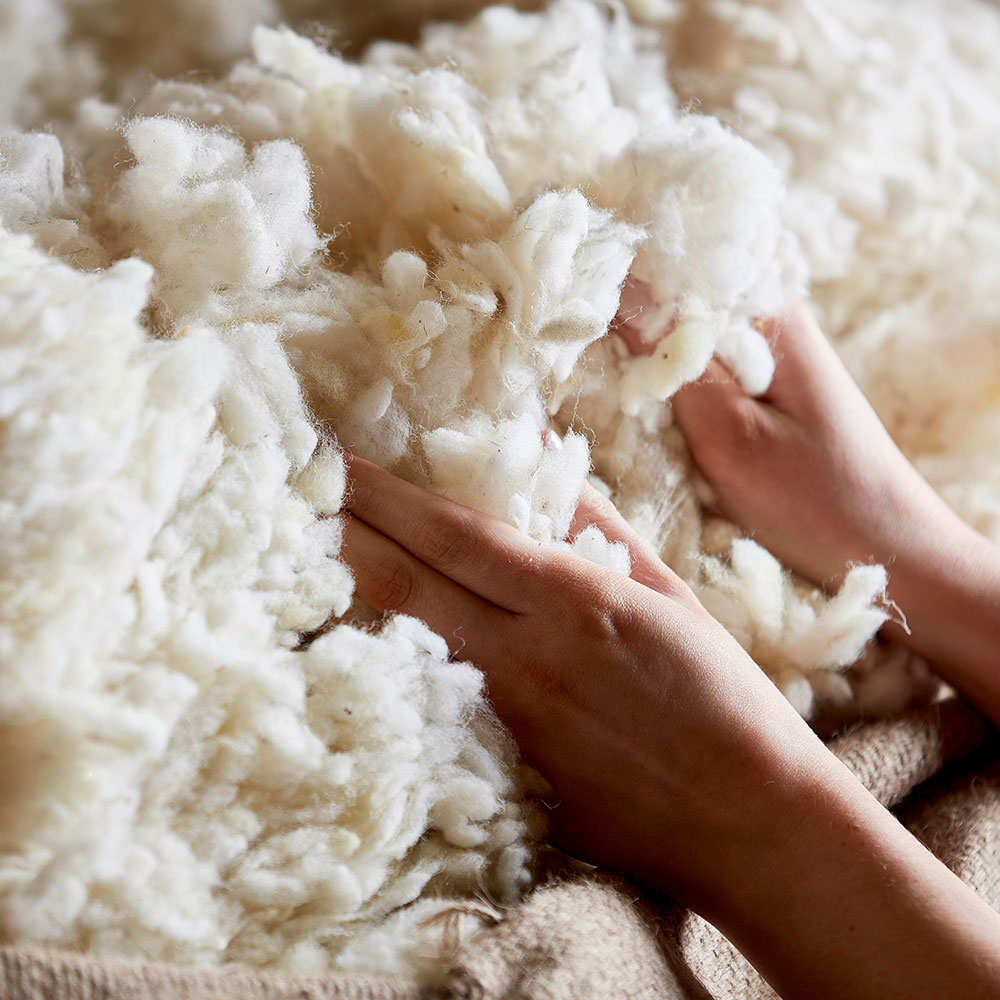
What’s the process from farm to mattress?
Once the crops have been harvested and the animals shorn, the wool is taken to the British Wool Marketing Board to be specially cleaned. Then it goes along with the other raw materials to the Harrison Spinks factory in Leeds, where it’s all placed into a mixing hopper that weighs the fillings out and mixes the different materials together.
They are then spun into a webbing, which is layered upon itself before being bonded together by thousands of small needles that penetrate all the fibres. Finally, these pads go through a thermal bonder and metal detector and are cut to size.
Inside a finished mattress, you’ll find top layers of wool, followed by cotton, then hemp. Each layer is a blend, so may feature other natural fillings such as silk, cashmere, or alpaca. The fillings provide comfort while springs provide support.
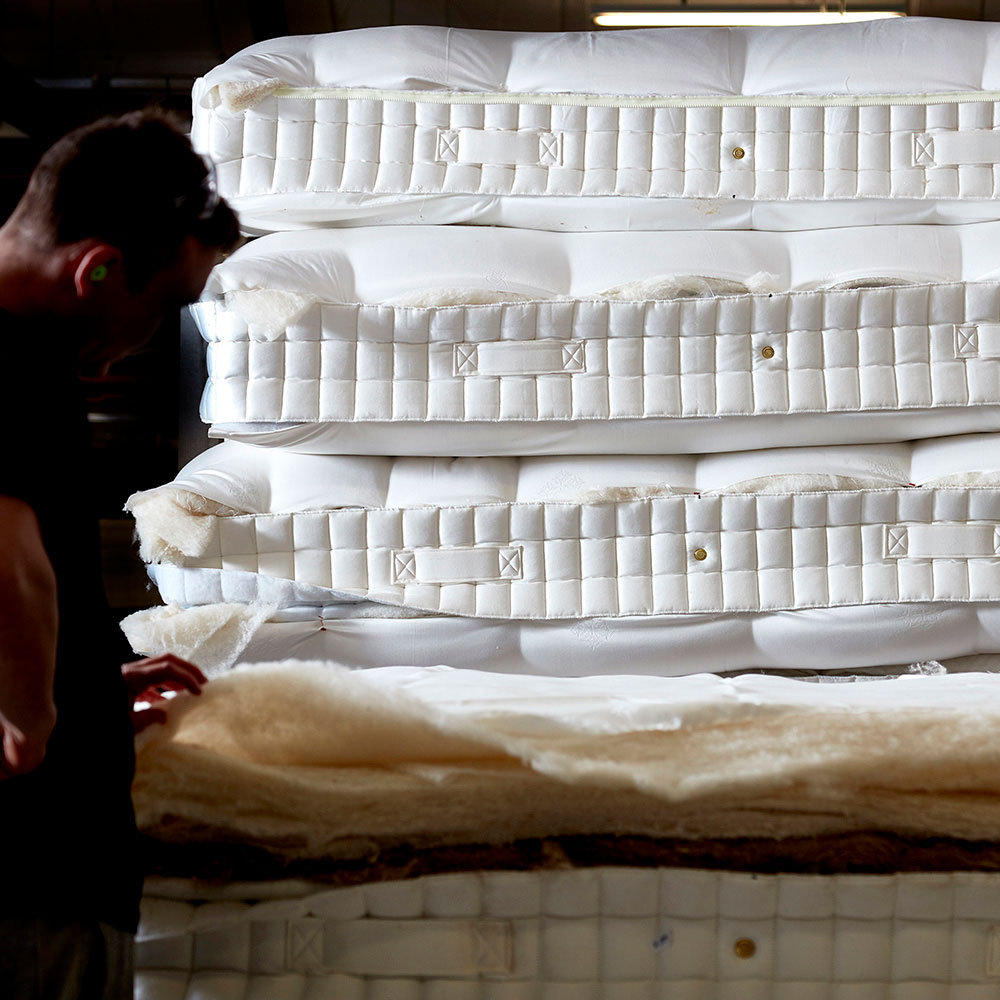
Do you have a wool mattress?
Oh, goodness yes – having a Harrison Spinks bed is the best part of the job! Sleeping well depends on the right microclimate, and natural fillings keep the body at the correct temperature. I’m so busy every day, I need to know I’m going to get a good night’s sleep!
What’s the first thing you do when you wake up?
I get up at six o’clock, rain or shine. After I’ve fed the chickens, goats and alpacas, I go for a 30-minute walk by the river that skirts the farm. It gives me a bit of thinking time, and I can plan the day ahead – there’s always so much to do, especially when it comes to the wedding side.
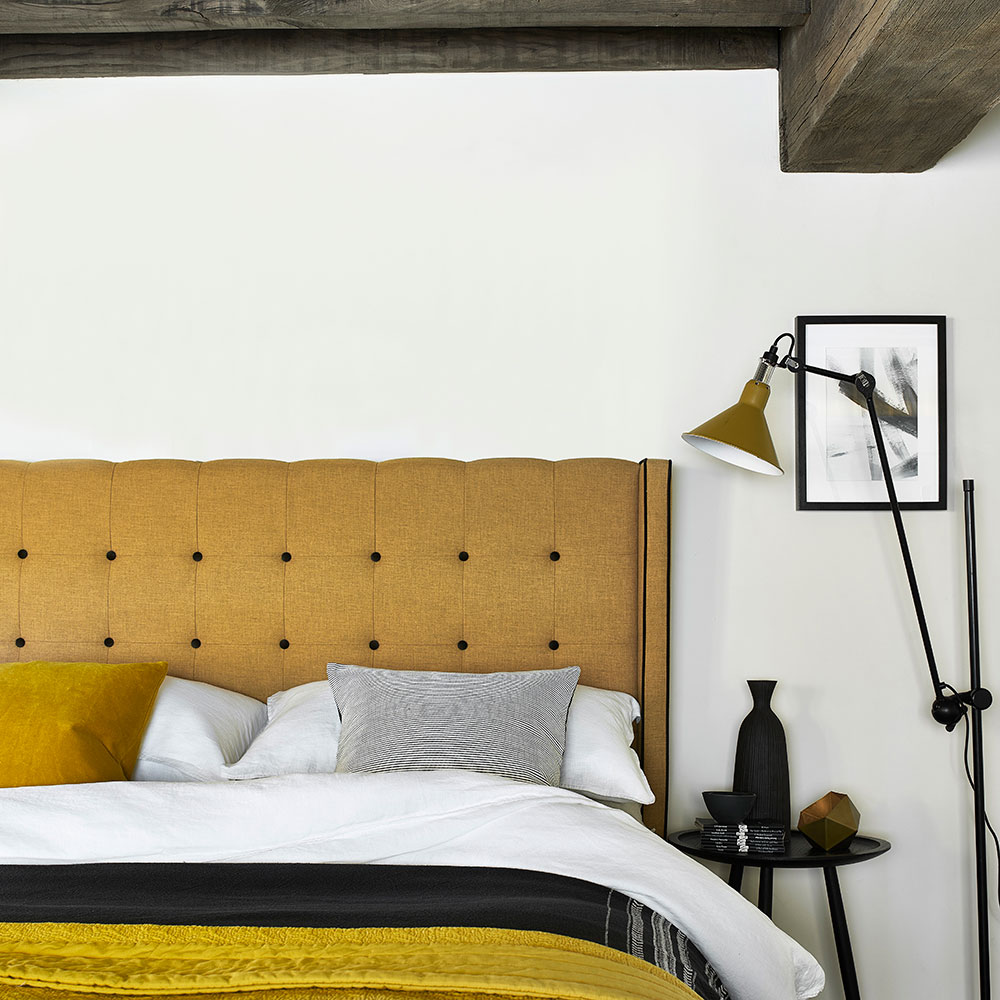
How did that side of things develop?
Six years ago, we decided to convert one of the old barns attached to the house into a beautiful rustic wedding venue. The accommodation can sleep up to 44 people, and we’re booked for weddings and midweek events throughout the year.
How do you manage to juggle it all?
I’ve got a team of seven to help me with the wedding events, which really takes the pressure off. Gary and Liam look after the farm on a day-to-day basis, although I’ll help out whenever it’s necessary. The key is to stay calm under pressure, be organised – and maintain a sense of humour.
What do you like to do when you get time off?
I very rarely have a weekend free – wedding guests are with us from Friday to Monday year round. But whenever we get the chance, Gary and I love going to Whitby, about an hour and a half from here. It’s such a contrast to the rural landscape and it’s wonderful to walk by the sea beachcombing, followed by fish and chips.







